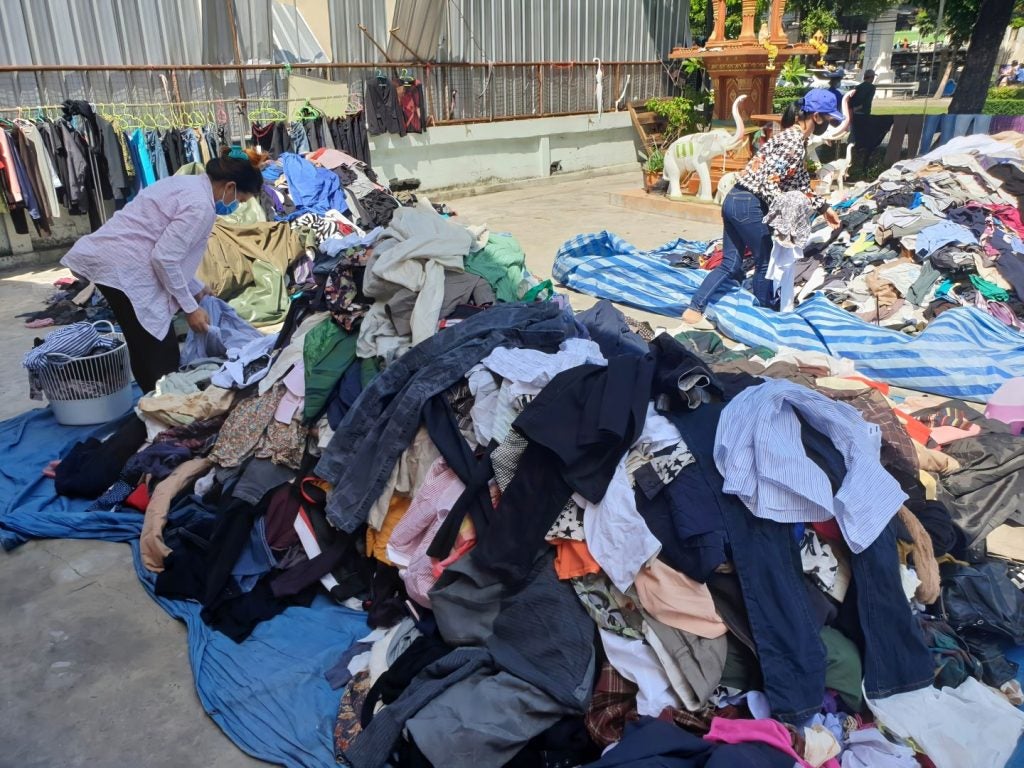The study titled 'Persistent Threat: PFAS in textiles and water in Bangladesh,' conducted by the Environment and Social Development Organization (ESDO) and IPEN, has revealed high levels of toxic PFAS chemicals in surface and tap water samples collected near industrial areas that are centres of the textiles industry throughout and around Dhaka.
The study's authors noted Bangladesh does not have specific regulations on PFAS so it is urging policymakers to develop a “class-based approach” to banning PFAS chemicals and addressing contamination in affected communities.
Dr. Shahriar Hossain, senior policy and technical advisor for ESDO and lead author of the study said: “Regulating thousands of PFAS chemicals one-by-one would take decades and leave our children at risk. We urgently need global controls on all PFAS chemicals as a class.”
He added: “PFAS in our waterways, tap water, and clothing pose serious health and environmental threats, yet industry and policymakers have been slow to respond."
Textiles industry found to be a major PFAS source in Bangladesh
The study's authors has also called on the textile industry and leading fashion brands to phase out PFAS use and be transparent about the presence of these chemicals in their products after water analyses revealed that samples with high PFAS levels were common in areas near textile-producing facilities.
Bangladesh's textile industry, which accounts for about 50% of global PFAS use and ranks second in PFAS emissions, is described in the study as a global hub for "fast fashion" exports, with numerous factories producing clothing for major brands.
In two waterways where samples were taken in 2022 downstream and upstream from Export Processing Zones (the Dhaka and Adamjee EPZs) which host large concentrations of textile plants, higher PFAS concentration was found.
"The fashion export industry should not get a free pass to contaminate our rivers, lakes, and taps with PFAS," said Siddika Sultana, executive director of ESDO in Bangladesh.
The study also pointed out that fashion brands sourcing products from Bangladesh have "tremendous market influence". It highlighted that demand for PFAS-free products would be a powerful force toward ending PFAS pollution, and noted that some brands have already committed to eliminating PFAS.
Key findings from the Bangladesh PFA pollution study
- PFAS were detected in 27 of 31 surface water samples (87%),
- Of the 27 samples containing PFAS, 18 samples (67%) contained one or more of the globally banned PFAS chemicals PFOA, PFOS, and/or PFHxS.
- 19 samples (70%) had PFAS levels exceeding the proposed EU regulatory limit (4.4 ng/L).
One sample from the Karnatali River in 2019 contained PFAS levels more than 300 times above the proposed EU limit, with PFOA and PFOS levels thousands of times higher than Dutch advisory limits.
Another sample from Hartirjheel Lake in 2022 was 185 times above the current Dutch advisory levels for PFOS.
Health and environmental risks
According to the study, PFAS have been linked to various health issues, including fertility problems, developmental issues, thyroid disruption, weakened immunity, liver damage, and cancer.
Some PFAS have been banned globally under the Stockholm Convention and others are under review for a global ban. Chemicals found in some samples from 2022 that were not found in 2019 suggested that manufacturers may be shifting away from banned or regulated PFAS chemicals to unregulated polymeric chemicals.
“Safer alternatives to PFAS in textiles already exist,” noted Jitka Straková, IPEN global researcher and co-author of the study. “Given the many health risks at all stages of human development due to the constant exposure to PFAS, the textile industry should move quickly to phase out their PFAS use and be transparent about the PFAS content in their products.”














